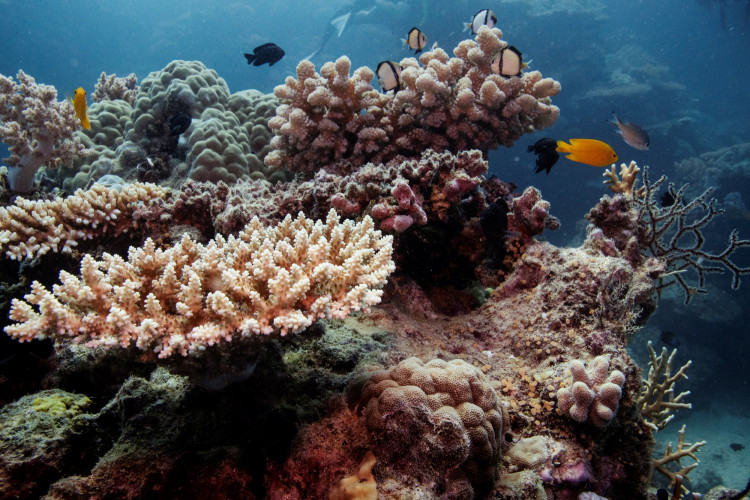According to a new Australian study that looked at changes in reef health, coral varieties, and resident fish across three decades, fish communities on Australia's famous Great Barrier Reef may grow less colorful as oceans warm and corals bleach.
The research focused on the reefs surrounding Orpheus Island, which is located in the middle of the world's largest coral reef system, and comes just weeks after the Great Barrier Reef was hit by another extensive bleaching event fuelled by growing carbon emissions.
"Future reefs may not be the colorful ecosystems we recognize today," marine ecologist Chris Hemingson and his James Cook University colleagues write in their paper, published in Global Change Biology.
"Our findings suggest that reefs may be at a critical transition point and might be poised to become much less colorful in the coming years."
Previous coral bleaching events have radically altered the make-up of the area's coral reefs, with the loss of soft and branching corals a possible cause in the disappearance of vividly colored fish, which are becoming increasingly rare, according to the study.
"As these complex corals become rarer, on future reefs impacted by climate change, fish communities may become duller," the trio of researchers wrote on their group's website.
To find out, Hemingson and colleagues looked at the color diversity in reef fish communities and compared it to the types of settings where those fish inhabit.
Fishes' color is organically tied to the coral reefs they live, whether it evolved bright colors to stand out and attract a mate or neutral tones to blend in and avoid predators.
According to Hemingson and colleagues, the first known mass bleaching event in 1998 wreaked havoc on the reefs near Orpheus Island, destroying complex branching corals and causing a "complete shift" in fish communities.
The abundance of the most attractive yellow and green fishes, such as the lemon damselfish and green coral goby, has decreased by nearly two-thirds in the three decades since.
Although the massive and encrusting boulder corals that replaced soft, branching corals are more resistant to heat impacts - effectively hardening the reef against future stressors - they likely provide less protection from predators for brightly colored fishes.
"Fish communities on future reefs are therefore likely to be a duller version of their previous configurations, even if coral cover remains high."
Hemingson recognizes the anguish that individuals may experience as fish species and corals become extinct - an ecological grief that scientists who study coral reefs firsthand are all too familiar with.
But, as scientists have demonstrated, grieving can be a potent drive that motivates people to take action.






